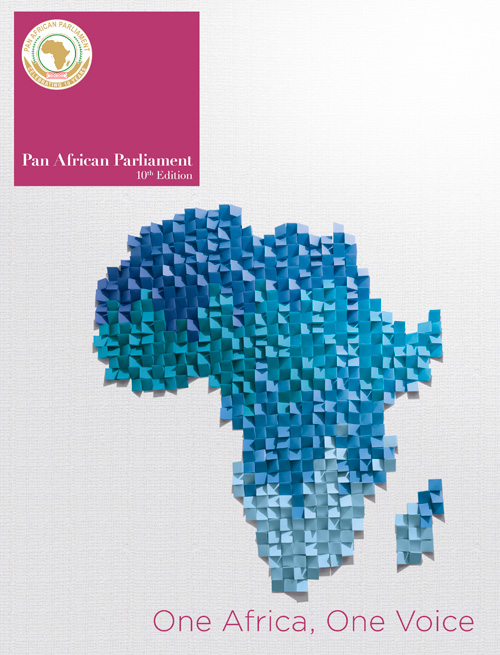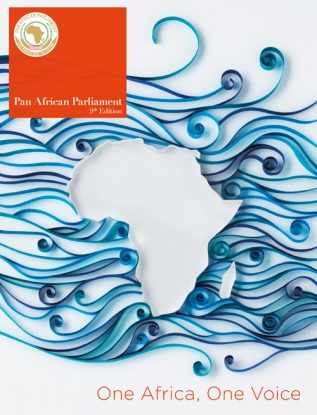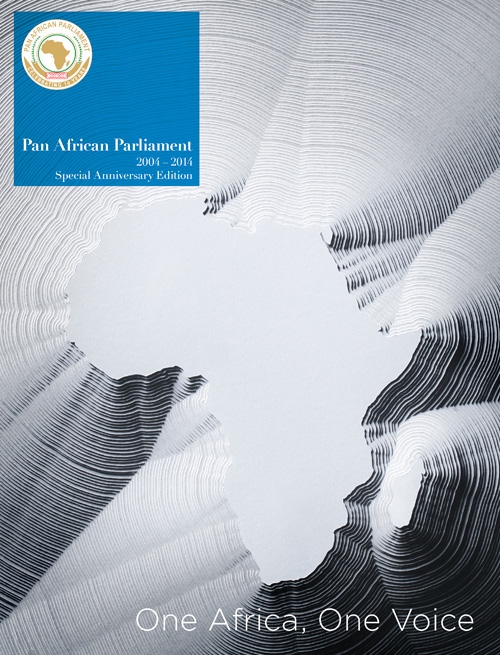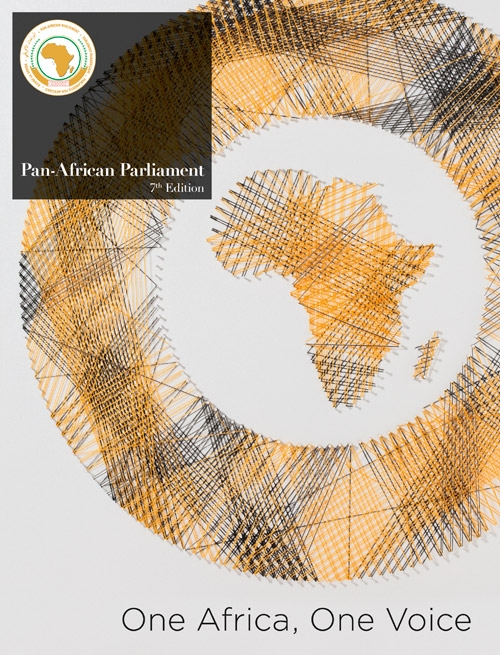
Access to energy greatly influences the life of rural communities and is fundamental to all aspects of human welfare, including access to clean water, healthcare and education, and increasing agricultural productivity.
However, 2.7 billion people have insufficient access to efficient and clean energy for cooking and heating, and 1.3 billion lack access to electricity; about 84% of this deprived population lives in rural areas of sub-Saharan Africa or Southeast Asia. Energy poverty is set to deteriorate even further over the next 20 years, without significant political commitment and investment. At the same time, access to energy is a critical enabler for economic and social development.
The overall objective of the workshop was to deepen the knowledge and understanding of the Members of the PAP with regard to renewable energy development and sustainable energy, so that they are better equipped to contribute to policy and financing discussions. The participants in the workshop heard the following presentations, and were given the opportunity to rigorously debate the key points after each one.
Sustainable Energy for Development
Maxwell Mapako of the Council for Scientific and Industrial Research outlined why there are no simple answers to the problem of providing resources and facilities to large numbers of people with little in common apart from their need. Installing services is one thing, but it is far more difficult to maintain and keep them operational.
For decades, many energy projects have been implemented across Africa, yet their long-term impacts are still uncertain. Projects often focus on short-term goals such as ‘installations per annum’, not the number of installations still active years later. Mapako gave examples of where improved energy access alleviated poverty, including:
- Solar home systems – These are meant to provide energy services for social and entertainment purposes, and facilitate productive activities such as extended working hours (as a result of better lighting conditions) and being able to use power tools.
- Chasiyatende Primary School in Zimbabwe – The school was registered as a milling company, thus qualifying for a maize allocation from the central Grain Market Board. Through grinding, bagging and marketing maize meal to the community, the school and several others saw their communities through famine situations, autonomously built additional classroom blocks and reduced or suspended tuition fees in times of drought.
- Charcoal stoves for commercial use in Tanzania – This project encouraged small bakeries to use charcoal stoves to aid them in alleviating poverty. Beneficiaries were trained to use the stoves supplied by TaTEDO who also maintained them for a fee. In one instance, a man procured a stove that his wife used to bake and sell the goods in order to acquire a second stove. The family moved from rented accommodation into a house they built themselves, and acquired two cows.
Sustainable Energy and Gender: Towards Equality
Odette Kabaya of the UN Development Programme spoke of the need to understand the relationship between climate change, energy and gender. There’s also the need to identify responses to address the various gender barriers in the energy sector in order to achieve greater gender equality, energy security and reduced emissions. She said that electricity for lighting and cleaner cooking technologies for food preparation are still a luxury for many rural women, and modern energy services are far from being accessible. This problem is more pronounced in rural areas, where solid fuels and traditional biomass is the main source of fuel, and poor women tend to be more involved in this sector.
Energy poverty is set to deteriorate even further over the next 20 years, without significant political commitment and investment
In sub-Saharan Africa, only 51% of the urban popu-lation and 8% of the rural population have access to electricity, compared to 99% and about 80%, respectively, in North Africa. Other exceptions in sub-Saharan Africa include South Africa, Ghana and Mauritius.
Extreme poverty and lack of access to other fuels mean that 80% of sub-Saharan Africa relies primarily on biomass to meet domestic energy needs. This dependence on biomass – mainly by women and girls –negatively affects both people and environment, such as the loss of vegetation and health problems associated with the carrying of firewood and indoor pollution.
Challenges and Opportunities for Legislators in Mainstreaming the Sustainable Energy Policy in Africa
David Lesolle, lecturer at the University of Botswana’s Department of Environmental Science, spoke of Africa’s substantial new and renewable energy resources, most of which are underexploited. Only about 7% of Africa’s enormous hydro potential has been harnessed. Existing estimates do not include small, mini and micro hydro opportunities, which are also significant.
Africa’s energy sector is best understood as three distinct regions – North Africa, which is heavily dependent on oil and gas; Southern Africa, which depends on coal; and the rest of sub-Saharan Africa, which is largely reliant on biomass energy. This includes a wide range of natural organic fuels, such as charcoal, wood, agricultural residues and animal waste, which is often used in its traditional and unprocessed form.
Extreme poverty and lack of access to other fuels mean that 80% of sub-Saharan Africa relies primarily on biomass to meet domestic energy needs
Even oil-rich sub-Saharan African countries continue to rely on biomass energy to meet the bulk of their household energy requirements. Rural electrification levels are very low in most of the sub-Saharan countries. The sector is mainly characterised by unreliable power supply; low access levels; the low capacity utilisation and availability factor; poor maintenance; poor procurement of spare parts; and high transmission and distribution losses, among other issues.
Parliamentary action on Renewable Energy
Dr Wilson Matekenya, Regional Director for sub-Saharan Africa at the Climate Parliament, informed participants that investment in renewable energy is minimal despite the high poverty and unemployment levels. Countries in the region without local energy supplies are forced to import foreign oil, gas and coal, leaving them vulnerable to price shocks and dependent on the political goodwill of trading partners.
Renewable energy is important to economic development, energy security, health and climate. Some countries are heavily dependent on imports, with more than 90% of national food supply coming from abroad.
Furthermore, production by foreign investors is often for export, not for domestic markets. Participants were concerned that local populations may not benefit from increased production in their countries. Worse, some investments are transforming farmers into seasonal workers as the jobs created from agricultural investments are temporary.
Case Study: Senegal
A presentation from Rufina Dabo Sarr from the Senegalese Ministry of Higher Education and Research outlined Senegal’s progress in developing renewable energy and the role MPs have taken in this regard. MPs have been engaged in both local and international meetings, and have held public hearings on the promotion of renewable energy in collaboration with the Climate Parliament.
These activities have raised awareness about renewable energy and have led to the creation of a Parliamentary Network on Climate. It is hoped that this awareness will create a larger force in the legislature to encourage Government to further promote renewable energy in Senegal.
PAP Strategic Objectives on Renewable Energy
Hon Pradeep Roopun told participants that there is a greater perspective to energy than just renewables. The continent is facing rapid climate change, which will affect renewable energy promotion. Thinking at a national level can no longer help and it is time that MPs thought at either regional or international levels.
He urged the need for access to up-to-date information on renewable energy and emphasised the importance of carrying out capacity building for MPs in the field of renewable energy. He further stated that there should be active participation of the PAP in discussions on the promotion of renewable energy on the continent.
Conclusion
Development is not possible without access to energy, and energy is vital for economic development. Conventional energy policies tend to focus on energy supply, with little attention given to social issues relating to energy. Gender-blind energy policies miss vital opportunities to ensure projects draw on women’s vital local knowledge and their influence within households and communities.
However, the continent continues to rely on fossil fuels, which are finite, for its energy requirement. There is now urgent need for the continent to develop its natural resources and promote the use of renewable energy.
With the resources that are available on the continent, renewable energy will be a reality. It is therefore vital that Regional Governments and the PAP play an integral role in defining the way forward on access to clean, affordable and sustainable energy.







